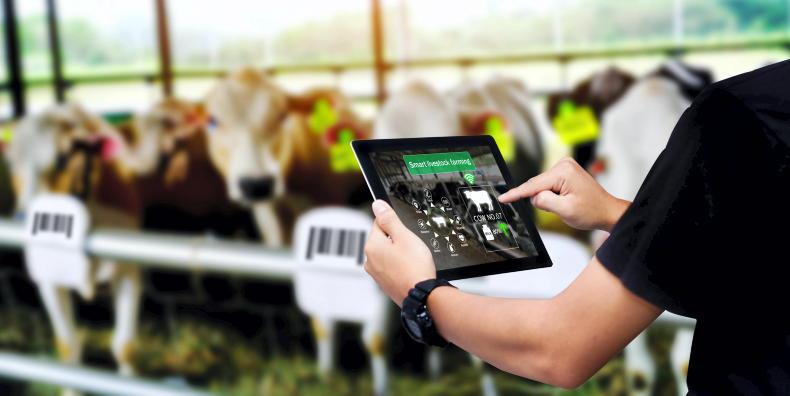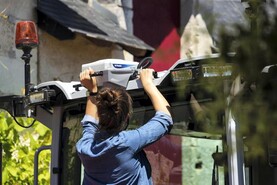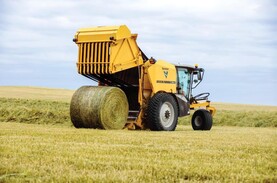During the Chinese new year holiday in February, I took the chance to escape the cold of Beijing and travelled to sunny western Australia.
Perth is a booming city and it has both the dynamism of a city like Dublin, but with the feel of a city built on an extraction industry, like Dubai.
It has the highest proportion of Irish people of anywhere in Australia and with almost four months without rain, it’s easy to see how us Irish can get used to the sun, sea and sand.
My trip to Perth coincided with Australia’s premier agtech conference, known as Evoke Ag.
In its ninth year, Evoke Ag had over 2,000 attendees and brought together the who’s who of agtech in Australia.
The first impression I had attending the event was the culinary fare. The diverse food and beverage section of the conference was all sourced locally.
Australian truffle, Australian coffee and Australian mangos were not things that most would traditionally associate with Down Under, but all were excellent.
Secondly, I was glad to visit Margaret Valley and to try some excellent wines, but I was also taken aback by the quality and choices of the craft beer available. Gone are the days of cheap lager! Even Australian whiskey is improving in both standard and quality.
Like most conferences in this sector, carbon, environmental, social, and corporate governance (ESG) and sustainability were recurring themes.
There were lots of good insights about how to maintain a premium for food produce.
On the eve of the conference, the CEO of Woolworths, one of the two major retailers, resigned. The resignation was spurred by pressure around a TV interview on the lack of competition in the retail sector, where soaring profits were recorded while consumers were struggling with rising grocery prices.
Aside from discussions around rising costs, the conference put Australian agtech under the spotlight. The range of startups and interesting companies on show was very impressive.

Ian Lahiffe.
Australia has created numerous excellent software solutions in agronomy, sheep and even pig production. Some technologies in the area of autonomous machinery, cropping, extensive farming and data-sharing are also highly impressive.
Progress
Yet, despite the hubris and the great progress to date, Australian agtech is also suffering from similar global trends around challenges with investment, with disappointing returns leading to much discussion about how to better foster further growth.
According to one of the Elders-sponsored speakers, the Australian agtech sector only receives proportionately one-tenth of the investments raised by US startups.
Justin Ellis, CEO of Agriwebb, pointed out that while Rishi Sunak had announced £220m (€258m) for farming technology subsidies in the UK, the Australian government has no similar programme, and even local government subsidies when added together are only a fraction of this sum.
Retailers
Clearly, there are areas around government support, more retailers supporting agtech adoption that are opportunities for improvement. Farmers need to be supported and the risks need to be shared in the adoption of new technology. I was, however, struck by the atmosphere and comradery at the conference.
It showed the strength and importance of relationships and collaboration in agtech adoption.
Good weather and cold beers help.
Ireland has made great strides with the formation of Agtech Ireland and by promoting collaboration among the companies active in the space.
Clearly, there are many of the same ingredients and factors facing our own agtech and food sector.
My takeaway lesson was that while startups and innovators can bring new concepts, in Ireland we need full engagement right across the industry to be more successful as an agtech hub.
During the Chinese new year holiday in February, I took the chance to escape the cold of Beijing and travelled to sunny western Australia.
Perth is a booming city and it has both the dynamism of a city like Dublin, but with the feel of a city built on an extraction industry, like Dubai.
It has the highest proportion of Irish people of anywhere in Australia and with almost four months without rain, it’s easy to see how us Irish can get used to the sun, sea and sand.
My trip to Perth coincided with Australia’s premier agtech conference, known as Evoke Ag.
In its ninth year, Evoke Ag had over 2,000 attendees and brought together the who’s who of agtech in Australia.
The first impression I had attending the event was the culinary fare. The diverse food and beverage section of the conference was all sourced locally.
Australian truffle, Australian coffee and Australian mangos were not things that most would traditionally associate with Down Under, but all were excellent.
Secondly, I was glad to visit Margaret Valley and to try some excellent wines, but I was also taken aback by the quality and choices of the craft beer available. Gone are the days of cheap lager! Even Australian whiskey is improving in both standard and quality.
Like most conferences in this sector, carbon, environmental, social, and corporate governance (ESG) and sustainability were recurring themes.
There were lots of good insights about how to maintain a premium for food produce.
On the eve of the conference, the CEO of Woolworths, one of the two major retailers, resigned. The resignation was spurred by pressure around a TV interview on the lack of competition in the retail sector, where soaring profits were recorded while consumers were struggling with rising grocery prices.
Aside from discussions around rising costs, the conference put Australian agtech under the spotlight. The range of startups and interesting companies on show was very impressive.

Ian Lahiffe.
Australia has created numerous excellent software solutions in agronomy, sheep and even pig production. Some technologies in the area of autonomous machinery, cropping, extensive farming and data-sharing are also highly impressive.
Progress
Yet, despite the hubris and the great progress to date, Australian agtech is also suffering from similar global trends around challenges with investment, with disappointing returns leading to much discussion about how to better foster further growth.
According to one of the Elders-sponsored speakers, the Australian agtech sector only receives proportionately one-tenth of the investments raised by US startups.
Justin Ellis, CEO of Agriwebb, pointed out that while Rishi Sunak had announced £220m (€258m) for farming technology subsidies in the UK, the Australian government has no similar programme, and even local government subsidies when added together are only a fraction of this sum.
Retailers
Clearly, there are areas around government support, more retailers supporting agtech adoption that are opportunities for improvement. Farmers need to be supported and the risks need to be shared in the adoption of new technology. I was, however, struck by the atmosphere and comradery at the conference.
It showed the strength and importance of relationships and collaboration in agtech adoption.
Good weather and cold beers help.
Ireland has made great strides with the formation of Agtech Ireland and by promoting collaboration among the companies active in the space.
Clearly, there are many of the same ingredients and factors facing our own agtech and food sector.
My takeaway lesson was that while startups and innovators can bring new concepts, in Ireland we need full engagement right across the industry to be more successful as an agtech hub.







 This is a subscriber-only article
This is a subscriber-only article











SHARING OPTIONS: